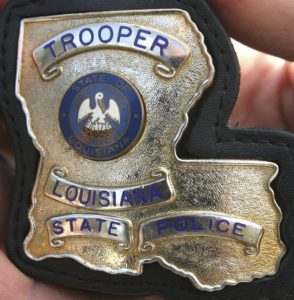Amid tension between the Black Lives Matter Movement and law enforcement advocates, the state of Louisiana just passed a bill that would expand hate crime protections to police officers.
The New York Daily News reports that Louisiana Gov. John Bel Edwards signed the controversial legislation Thursday, which also provides hate crime protections to firefighters and EMS workers.
“The men and women who put their lives on the line every day, often under very dangerous circumstances are true heroes and they deserve every protection that we can give them,” Edwards, whose father was a sheriff, said in statement.“They serve and protect our communities and our families. The overarching message is that hate crimes will not be tolerated in Louisiana.”
According to the FBI, a hate crime is traditionally defined as a “criminal offense against a person or property motivated in whole or in part by an offender’s bias against a race, religion, disability, sexual orientation, ethnicity, gender, or gender identity.”
Recently dubbed the ‘Blue Lives Matter’ bill, similar legislation that puts criminal offenses against cops on par with hate crimes remains stalled in five other states, the Christian Science Monitor reports. Louisiana is the first to pass such a bill.
Per the news site, those convicted of a felony hate crime in Louisiana could face an additional five years behind bars and a hefty fine of up to $5,000. In misdemeanor cases, penalties are raised by $500 or a sentence of six months in prison.
The infamous moniker is a response to the Black Lives Matter Movement, a national movement sparked by the fatal 2012 shooting of unarmed Black teen Trayvon Martin. The continuous string of unjustified killings of Black Americans at the hands of police further fueled the growth and influence of the anti-police brutality movement.
“They’re targeting young Black people who are standing up and demanding more from our government,” Latoya Lewis, co-chair of the New Orleans chapter of the Black Youth Project 100, told the Associated Press.
At times, violent protests broke out in response to the high-profile killings, as police officers were rarely held accountable for their misconduct. This and a spike in the number of ambush killings on police are what prompted the creation of the controversial bill.
According to CNN.com, state Rep. Lance Harris drafted House Bill 953 after a Texas sheriff’s deputy named Darren Goforth was ambushed, shot and killed in August.
“It looked like it was strictly done because someone didn’t like police officers, like a hate crime,” Harris said. “In the news, you see a lot of people terrorizing and threatening police officers on social media just due to the fact that they are policemen. Now, this [new law] protects police and first responders under the hate crime law.”
While supporters of the law say it will further safeguard those sworn to protect and serve the community, critics argue that police already receive additional protections under the law, the Christian Science Monitor reports.
“The bill confuses the purpose of the Hate Crimes Act and weakens its impact by adding more categories of people, who are already better protected under other laws,” said Allison Padilla-Goodman, the Anti-Defamation League’s Regional Director for Arkansas, Louisiana and Mississippi.
“Hate Crimes are designed to protect people’s most precious identity categories … like race, religion, gender, sexual orientation, disability, ethnicity and gender identity,” Padilla-Goodman also stated in a release. “Proving the bias intent is very different for these categories than it is for the bias intent of a crime against a law enforcement officer.”
Critics also expect the new bill to complicate the already frayed relationship between police and the community — particularly communities of color.
“Given some of the egregious acts against Black people by criminally aggressive officers in other jurisdictions, one can hardly cast blame if anyone – particularly a person of color – develops a skeptical attitude about how minorities are treated,” wrote the editorial board of the Democrat-Gazette of Northwest Arkansas after the fatal shooting of a Black man in Fayetteville, Arkansas.



